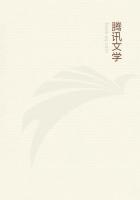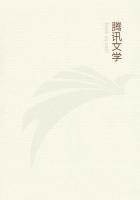To {66}the second,therefore,that they should be the principal liars,I answer paradoxically,but truly,I think truly,that of all writers under the sun,the poet is the least liar;and though he would,as a poet,can scarcely be a liar.The astronomer,with his cousin the geometrician,can hardly escape when they take upon them to measure the height of the stars.How often,think you,do the physicians lie,when they aver things good for sicknesses,which afterwards send Charon a great number of souls drowned in a potion before they come to his ferry.And no less of the rest which take upon them to affirm.Now for the poet,he nothing affirmeth,and therefore never lieth;for,as I take it,to lie is to affirm that to be true which is false:so as the other artists,and especially the historian,affirmeth many things,can,in the cloudy knowledge of mankind,hardly escape from many lies:but the poet,as I said before,never affirmeth;the poet never maketh any circles about your imagination,to conjure you to believe for true what he writeth:he citeth not authorities of other histories,but even for his entry calleth the sweet Muses to inspire into him a good invention;in troth,not labouring to tell you what is or is not,but what should or should not be.And,therefore,though he recount things not true,yet because he telleth them not for true he lieth not;without we will say that Nathan lied in his speech,before alleged,to David;which,as a wicked man durst scarce say,so think I none so ****** would say,that AEsop lied in the tales of his beasts;for who thinketh that AEsop wrote it for actually true,were well worthy to have his name chronicled among the beasts he writeth of.What child is there that cometh to a play,and seeing Thebes written in great letters upon an old door,doth believe that it is Thebes?If then a man can arrive to the child's age,to know that the poet's persons and doings are but pictures what should be,and not stories what have been,they will never give the lie to things not affirmatively,but allegorically and figuratively written;and therefore,as in history,looking for truth,they may go away full fraught with falsehood,so in poesy,looking but for fiction,they shall use the narration but as an imaginative ground-plot of a profitable invention.
But hereto is replied,that the poets give names to men they write of,which argueth a conceit of an actual truth,and so,not being true,proveth a falsehood.And doth the lawyer lie then,when,under the names of John of the Stile,and John of the Nokes,he putteth his case?But that is easily answered,their naming of men is but to make their picture the more lively,and not to build any history.Painting men,they cannot leave men nameless;we see we cannot play at chess but that we must give names to our chess-men:
and yet,methinks,he were a very partial champion of truth that would say we lied for giving a piece of wood the reverend title of a bishop.The poet nameth Cyrus and AEneas no other way than to show what men of their fames,fortunes,and estates should do.
Their {67}third is,how much it abuseth men's wit,training it to a wanton sinfulness and lustful love.For,indeed,that is the principal if not only abuse I can hear alleged.They say the comedies rather teach,than reprehend,amorous conceits;they say the lyric is larded with passionate sonnets;the elegiac weeps the want of his mistress;and that even to the heroical Cupid hath ambitiously climbed.Alas!Love,I would thou couldst as well defend thyself,as thou canst offend others!I would those on whom thou dost attend,could either put thee away or yield good reason why they keep thee!But grant love of beauty to be a beastly fault,although it be very hard,since only man,and no beast,hath that gift to discern beauty;grant that lovely name of love to deserve all hateful reproaches,although even some of my masters the philosophers spent a good deal of their lamp-oil in setting forth the excellency of it;grant,I say,what they will have granted,that not only love,but lust,but vanity,but,if they list,scurrility,possess many leaves of the poets'books;yet,think I,when this is granted,they will find their sentence may,with good manners,put the last words foremost;and not say that poetry abuseth man's wit,but that man's wit abuseth poetry.For I will not deny but that man's wit may make poesy,which should be [Greek text],which some learned have defined,figuring forth good things,to be [Greek text],which doth contrariwise infect the fancy with unworthy objects;as the painter,who should give to the eye either some excellent perspective,or some fine picture fit for building or fortification,or containing in it some notable example,as Abraham sacrificing his son Isaac,Judith killing Holofernes,David fighting with Goliath,may leave those,and please an ill-pleased eye with wanton shows of better-hidden matters.
But,what!shall the abuse of a thing make the right use odious?
Nay,truly,though I yield that poesy may not only be abused,but that being abused,by the reason of his sweet charming force,it can do more hurt than any other army of words,yet shall it be so far from concluding,that the abuse shall give reproach to the abused,that,contrariwise,it is a good reason,that whatsoever being abused,doth most harm,being rightly used (and upon the right use each thing receives his title)doth most good.Do we not see skill of physic,the best rampire {68}to our often-assaulted bodies,being abused,teach poison,the most violent destroyer?Doth not knowledge of law,whose end is to even and right all things,being abused,grow the crooked fosterer of horrible injuries?Doth not (to go in the highest)God's word abused breed heresy,and His name abused become blasphemy?Truly,a needle cannot do much hurt,and as truly (with leave of ladies be it spoken)it cannot do much good.













